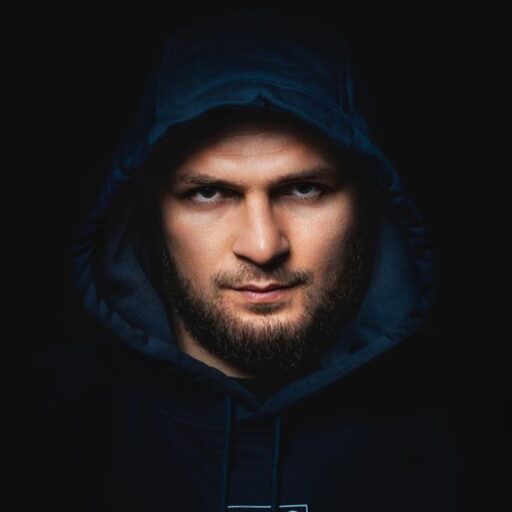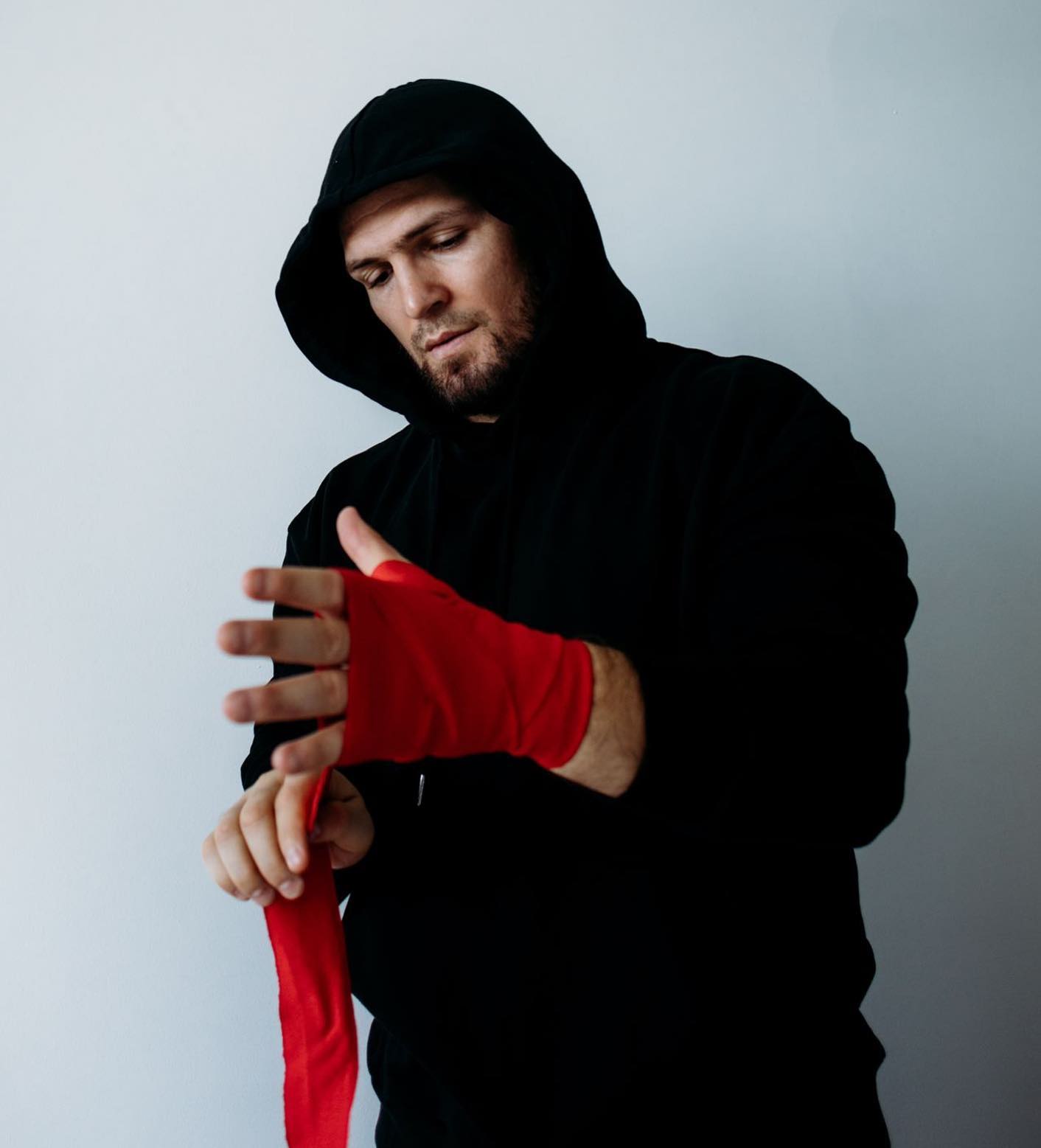The Legend of Khabib Nurmagomedov is a name that has become synonymous with dominance, discipline, and unparalleled grappling prowess in the world of Mixed Martial Arts (MMA). Hailing from the rugged mountains of Dagestan, Russia, his journey from a small boy trained in the martial traditions of his homeland to MMA world champion is a tale of determination, cultural pride, and unyielding willpower.
Early Life and Cultural Influences
Born on September 20, 1988, in the village of Sildi within the Tsumadinsky District, Khabib grew up in an environment where combat skills were highly prized. The North Caucasus region of Dagestan is renowned for producing world-class wrestlers and fighters, a tradition deeply ingrained in the local culture.
Khabib’s father, Abdulmanap Nurmagomedov, was a decorated athlete, holding black belts in judo and sambo, and played a pivotal role in Khabib’s development as a fighter. Abdulmanap was not just a father, but a mentor and coach who fostered an environment of discipline and hard work. He famously began training Khabib as early as age three, emphasizing not only physical strength but mental fortitude.
Roots in Wrestling and Sambo
Wrestling played an essential role in Khabib’s early training. Dagestan is a hotbed for grappling sports, particularly freestyle wrestling. However, Abdulmanap introduced Khabib to sambo, a Soviet martial art that is a blend of judo and wrestling techniques. The choice was strategic; sambo would give Khabib a versatile grappling base combined with striking components.
By his teenage years, Khabib was already showing immense promise. He won titles in local and national wrestling tournaments and by 2008, he claimed the World Combat Sambo Championship. His early dominance in sambo marked him out as a formidable athlete, but the world’s biggest stages were yet to come.
Transition to Mixed Martial Arts
Khabib’s transition to MMA began in 2008. His early fights were predominantly in Russia and Ukraine, where he quickly amassed an undefeated streak. The cards were often stacked with local talent, yet Khabib’s relentless grappling and ground control saw him dominate each bout. These victories earned him a call-up to the world’s premier MMA promotion, the Ultimate Fighting Championship (UFC), in 2012.
The Rise in UFC
Upon entering the UFC, Khabib Nurmagomedov quickly established himself as a lightweight to watch. In his debut match, he faced Kamal Shalorus at UFC on FX 1 and emerged victorious with a third-round submission, a rear-naked choke that would become one of his signature moves. This was just the beginning of a stellar career in the UFC.
One of Khabib’s standout early performances in the UFC came against Abel Trujillo at UFC 160. During the bout, Khabib broke the record for the most takedowns in a single fight, executing an astonishing 21 takedowns from 27 attempts. This display of relentless pressure and grappling efficiency not only shattered records but also signaled a new era in the lightweight division.
The Rivalries and Ascension to Champion
Khabib’s rise to the top was not without challenges. Injury setbacks postponed his ascendancy, but each time he returned stronger, demonstrating remarkable resilience. His rivalry with Tony Ferguson, for instance, was a highly anticipated matchup that unfortunately never materialized due to a series of injuries and mishaps affecting both fighters.
His breakthrough moment came in April 2018 at UFC 223, where Khabib faced Al Iaquinta for the undisputed lightweight championship. Khabib’s wrestling and ground control were once again on full display as he secured a unanimous decision victory and the belt. This victory marked him as the first Russian and the first Muslim to win a UFC title, a historic feat resonating far beyond the confines of the octagon.
The pinnacle of Khabib’s career, however, is often cited as his bout against Conor McGregor at UFC 229 in October 2018. The buildup to the fight was marred by personal animosities, including an infamous bus attack by McGregor. Inside the octagon, Khabib showcased a masterclass in grappling, eventually submitting McGregor in the fourth round via neck crank. The aftermath saw a brawl erupt between the camps, further cementing the rivalry as one of the most intense in MMA history.
Legacy and Cultural Impact
Khabib’s influence extends far beyond his fighting prowess. As a devout Muslim, he’s become a role model for millions around the world who see him as a beacon of discipline, faith, and fortitude. He remains grounded in his Dagestani roots, and his post-fight speeches often reference his respect for his culture, family, and faith.
One of the most poignant moments of Khabib’s career came after the passing of his father, Abdulmanap, in 2020 due to complications from COVID-19. At UFC 254, Khabib faced Justin Gaethje, securing a second-round triangle choke victory. In an emotional announcement, he declared his retirement from the sport, citing his promise to his mother not to continue fighting without his father by his side. This decision left him with an undefeated record of 29-0, a rarity in MMA and a testament to his dominance.
Training Ethics and Philosophy
Khabib’s training ethic has been the subject of admiration and study. His regimen includes rigorous mountain runs, strength training, and countless hours of wrestling and sparring. His philosophy revolves around the concept of “Smesh,” a term made famous by his broken English but embraced worldwide, meaning to overwhelm and dominate opponents on the ground.
He approaches fighting with a blend of strategic intelligence and physical prowess, adhering to a game plan crafted meticulously with his team, particularly his cousins and close friends who often form his training partners.
Post-Retirement Ventures
Following his retirement, Khabib has ventured into various arenas, expanding his influence beyond fighting. He acquired the Russian MMA promotion Gorilla Fighting Championship, rebranding it as Eagle Fighting Championship (EFC). He aims to provide opportunities for emerging talents, particularly those from underrepresented regions.
Moreover, Khabib has invested time in coaching and mentoring fighters, perpetuating the legacy his father started. His presence in the corners of future champions signifies his transition from athlete to mentor, where his tactical acumen continues to shape the sport.
Conclusion
Khabib the legend’s journey through MMA is one of unparalleled dominance, cultural pride, and relentless discipline. From the mountains of Dagestan to the pinnacles of the UFC, Khabib’s legacy transcends sports. His story is a testament to the power of dedication, the importance of cultural heritage, and the impact of unwavering faith and family support. As the world looks forward to witnessing more from Khabib in his post-fighting roles, his unbeaten legacy continues to inspire generations.

